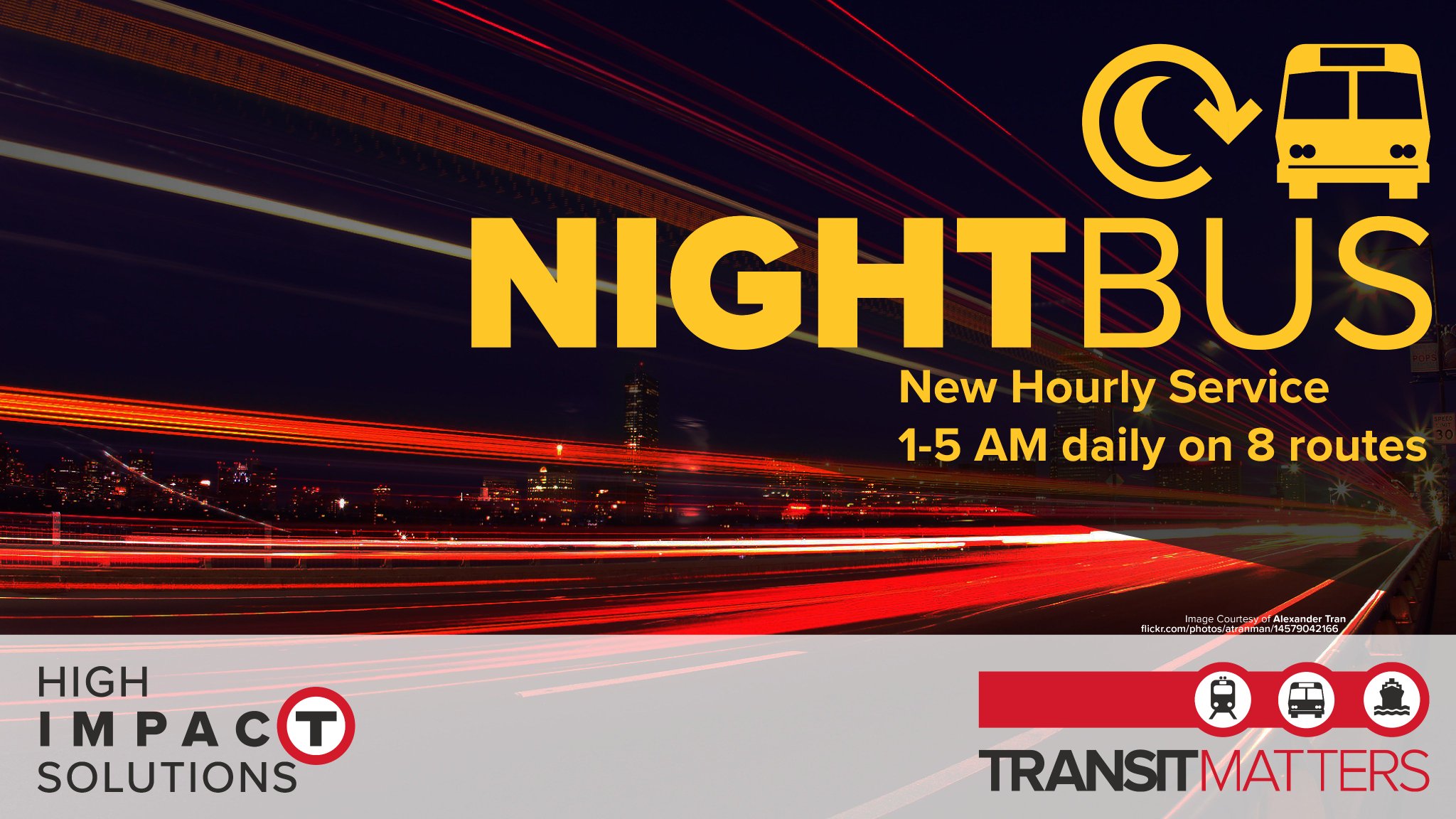- Joined
- Sep 15, 2010
- Messages
- 8,894
- Reaction score
- 271
TransitMatters
@transitmatters
Please show your support for our latest overnight bus plan that #MBTA will be reviewing [TOMORROW AT NOON AT THE STATE TRANSPORTATION BUILDING]!
http://action.transitmatters.info/initiative-nightbus


@transitmatters
Please show your support for our latest overnight bus plan that #MBTA will be reviewing [TOMORROW AT NOON AT THE STATE TRANSPORTATION BUILDING]!
http://action.transitmatters.info/initiative-nightbus


